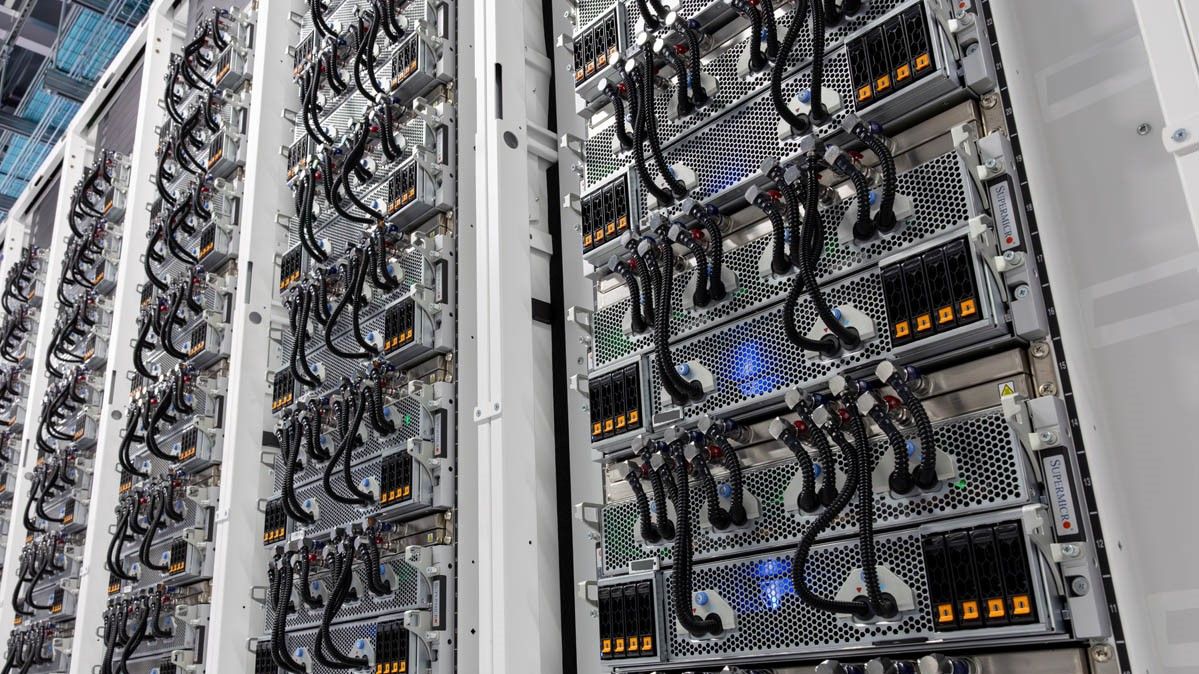Last year it turned out that Elon Musk’s xAI had to install additional ‘portable’ generators near its facility adjacent to Memphis, Tennessee, to power the Colossus supercomputer with over 100,000 Nvidia H100 GPUs as local power grid could not support the load. Now it turns out that these generators were not exactly legal, yet they can keep running, reports The Guardian.
xAI’s Colossus supercomputer consumes about 150 MW of power when equipped with 100,000 H100 GPUs. More when it is upgraded to 200,000 processors. However, last July the site near Memphis, Tennessee, could only provide 8 MW of power to the facility, so Musk’s company had to install gas fueled turbines to power the colossal supercomputer.
However, the company had only sought permits for 15 units, but aerial images now show double that number in operation. Apparently, 20 gas generators are now running without the required approvals, raising alarm from environmental groups and nearby residents, according to The Guardian who refer to KeShaun Pearson, director of the advocacy group Memphis Community Against Pollution.
Pearson stated to the Shelby count board of commissioners (Memphis, Tennessee) that xAI is using 35 methane gas burning turbines while only having a permit for 15.
The company seems to be using a legal loophole that allows turbines to run without permits if they are not fixed in one location for more than 364 days. In January, xAI filed for approval of 15 turbines, but the other 20 were not included and still have no legal clearance. However, they can keep running for months before xAI gets formal approval, if local authorities actually approve them.
The Southern Environmental Law Center revealed images and calculations showing that the turbines can produce 420 MW, an amount sufficient to power a city. According to senior attorney Amanda Garcia, xAI has essentially created an unregulated power facility in a residential area, posing significant health and environmental risks.
The law center stated in a letter that these generators are a major pollution source and breach federal air quality rules, including emissions of hazardous and cancer-causing substances. They demanded that the local health agency issue an emergency halt to the operations and fine the company $25,000 for every day it continues to run them without proper authorization.
A company representative scheduled to address the county board did not attend the meeting, according to The Guardian.
